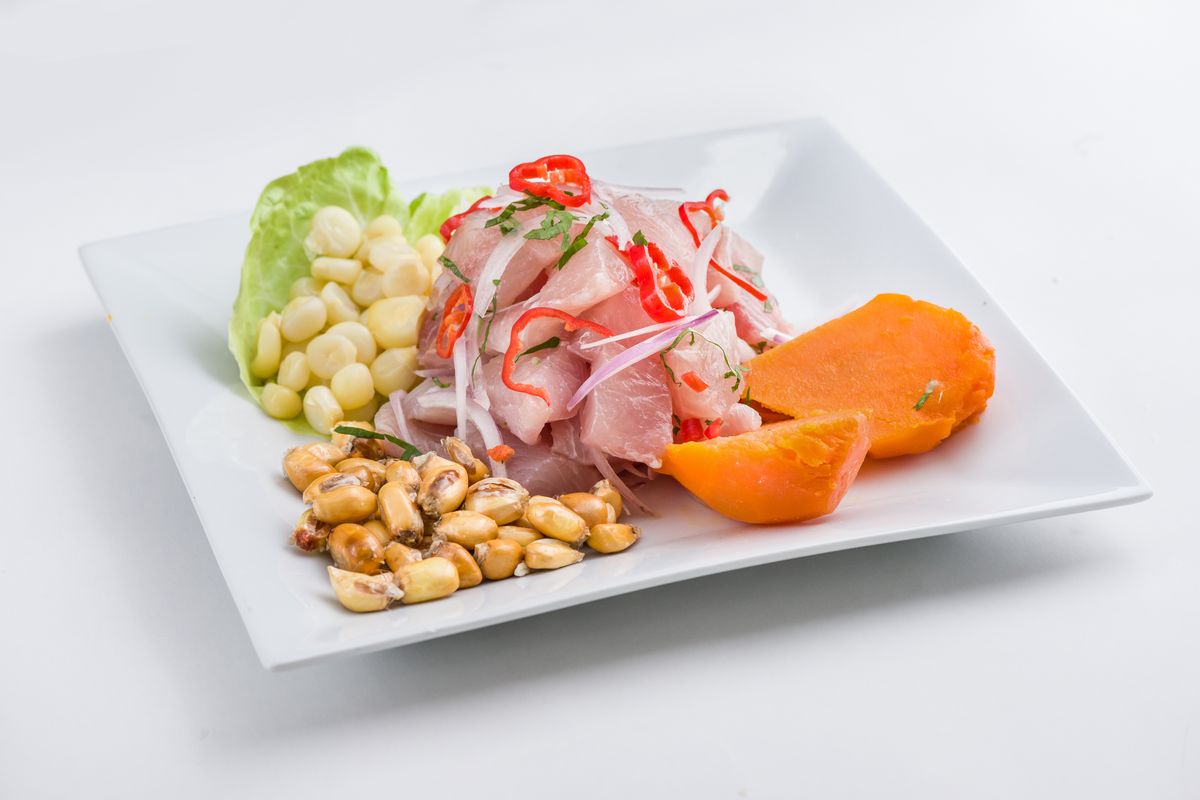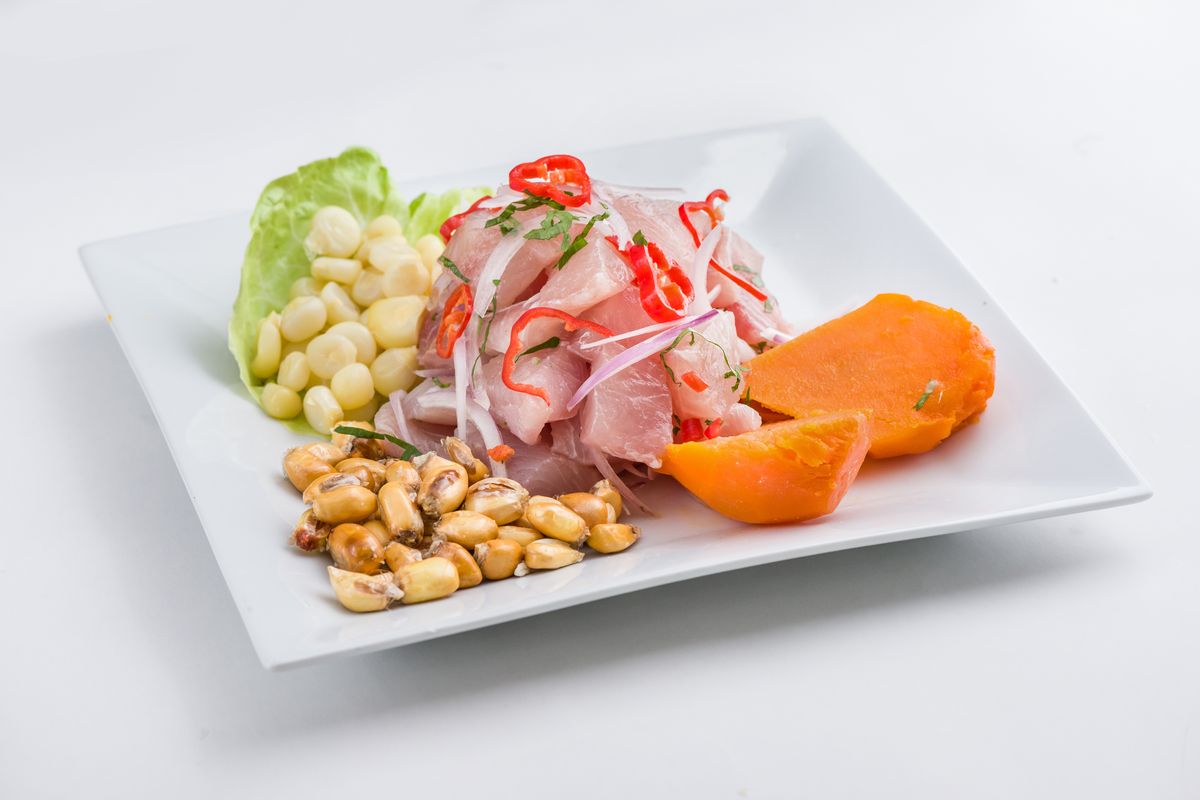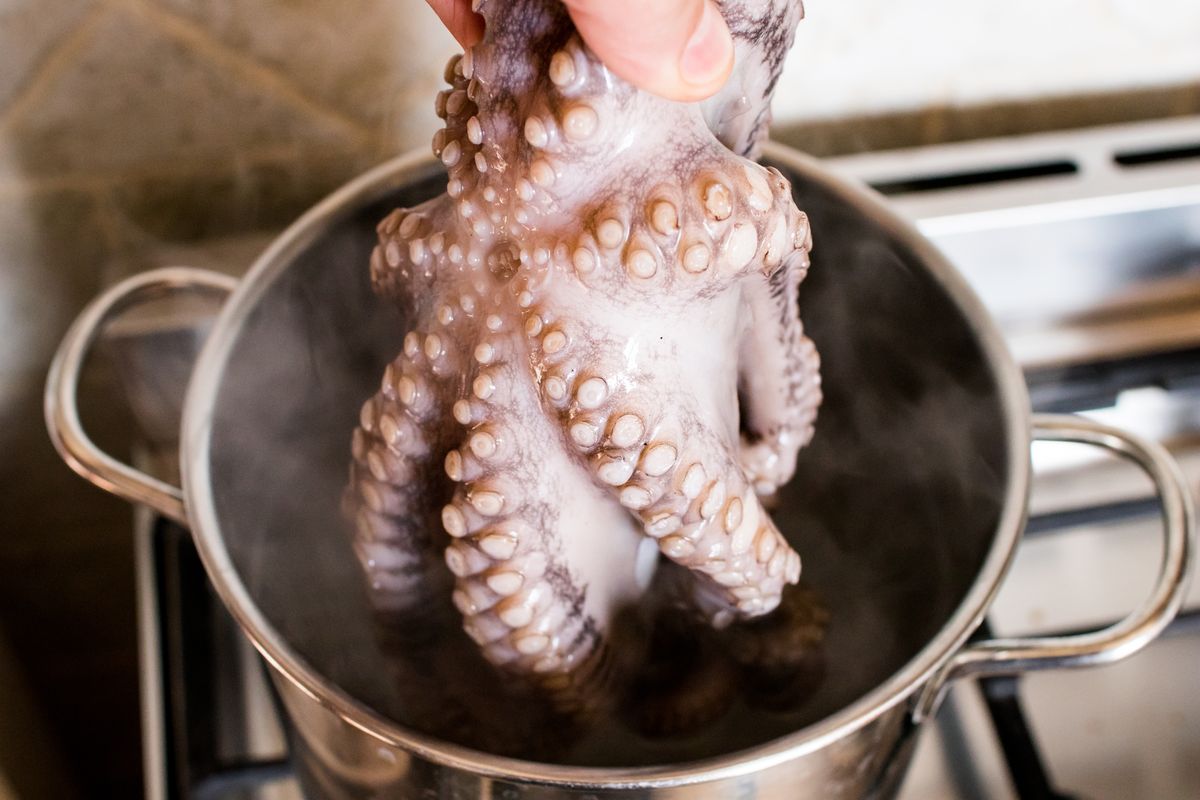Recipes
Fish lovers, here is the recipe for you: Peruvian ceviche!


Peruvian ceviche: the history, the ingredients and all the steps to prepare a perfect dish for those who love raw fish and strong flavours.
Raw fish does not necessarily mean sushi and sashimi. Yes, because among the many international recipes we cannot fail to mention that of Peruvian ceviche, a fish-based dish that is marinated in the juice of an acidic fruit , mainly lime or lemon, and then served with other ingredients.
Like the vast majority of typical recipes, there are many countries that claim paternity. From Guatemala to Mexico, passing through Colombia and Costa Rica, it is truly impossible not to come across this fresh fish dish whose history dates back to before the Inca empire .
According to the Peruvians themselves, ceviche is nothing more than an invention of the Mochica civilization who marinated fish with lime juice, the local tumbo fruit, corn and chili pepper.
For fish varieties, some use perch, amberjack, plaice or grouper. Generally the Peruvian variant requires the fish to be served with corn, sweet potatoes and lettuce. Are you ready to discover the recipe step by step?

Preparation of Peruvian ceviche
- First of all, rinse the fish under cold running water, then pat it dry with kitchen paper, cut it into pieces of approximately the same size and transfer it to a glass bowl.
- Peel the onion, wash it and slice it finely. Now clean the pepper, remove the seeds and internal filaments then cut it into cubes .
- Finely chop the chilli pepper and finally peel and chop the garlic clove. Add onion, garlic, pepper and chilli to the fish.
- Season with salt and pepper then sprinkle everything with the lime juice squeezed and filtered through a sieve.
- Mix, cover the container with cling film then leave to rest in the refrigerator for at least an hour .
- Once the resting time has elapsed, serve the fish, completing with a sprinkling of fresh chopped coriander. Enjoy your meal!
Don't miss the seafood salad recipe too.
storage
After marinating, we recommend consuming the fish dish cold at the moment .
Variations of the Peruvian fish ceviche
There are many variations of this dish, which is served both as an appetizer but also as a second course without cooking. Let's see them all together:
- Mixed ceviche : has the same ingredients as regular ceviche, but different shellfish are also added. It is served with sweet potatoes and decorated with lettuce leaves.
- Black conch ceviche : a typical dish of the coasts of Tumbes and Piura and is prepared with the black conch or Anadara tuberculosa, marinated with lemon and seasoned with red onion, garlic, chilli pepper and rocoto, a particular Peruvian chilli pepper. It is accompanied with chifles, thin fried banana slices, Egyptian dolico or toasted corn.
- Shrimp ceviche .
- Octopus ceviche : the preparation is similar to fish ceviche, but it is important that the octopus is tender, so it is boiled to soften the meat.
- Chinguirito : Made with dried guitar fish and seasoned with lemon and leche de tigre.
- Mushroom Ceviche : Popular in good restaurants in Lima, it is prepared with pork.
- Ceviche de chochos : prepared with lupine (tarwi), a product native to the Andes. It is also known as “Anchash ceviche” or “chilli ceviche”.
- Ceviche with animal testicles : typical of the Cajamarca region, it is prepared with the testicles of a young ram.
History of ceviche
In ancient Peru, during the Mochica era, about two thousand years ago, a dish based on raw fish was prepared. This dish was cooked using the fermented juice of tumbo , a fruit typical of the region called Passiflora tripartita of the mollissima variety. During the Inca empire, however, fish was macerated with beer. According to some chronicles , along the Peruvian coast the fish was eaten with salt and yellow chili pepper or with chili. Subsequently, due to the Spanish conquest, two common ingredients of Mediterranean cuisine were introduced: lemon and onion. The spread of lemon cultivation in Peru has made it possible to reduce the preparation time of this traditional dish, contributing to its diffusion.
In 1820 , scholar Jaime Ariansen mentioned this recipe in a popular song called “La Chica.” During the period of independence, soldiers chanted the verse: “Venga la guatia Un liguero en Europa…: The 'Guatia'…, after the sebice, which still invites us to drink and get excited…” . The song was written by José Bernardo Alcedo and José de la Torre Ugarte, the authors of the national anthem of Peru. In 1866 , Manuel Atanasio Fuentes wrote in a chronicle that the predominantly national foods were very spicy and pleasant to the people, but of all, the spiciest dish capable of making a tear escape was cebiche. The same author, in an 1860 chronicle , described the preparation of seviche with fish cubes, chili pepper, salt and orange juice. Another testimony of the time is reported by Juan de Arona in 1867 , who delighted us with these verses: “I would like my muse to sing / or at least praise / a just torment / the delights of the spicy / and of the Peruvian sevice ” .
Riproduzione riservata © - WT












